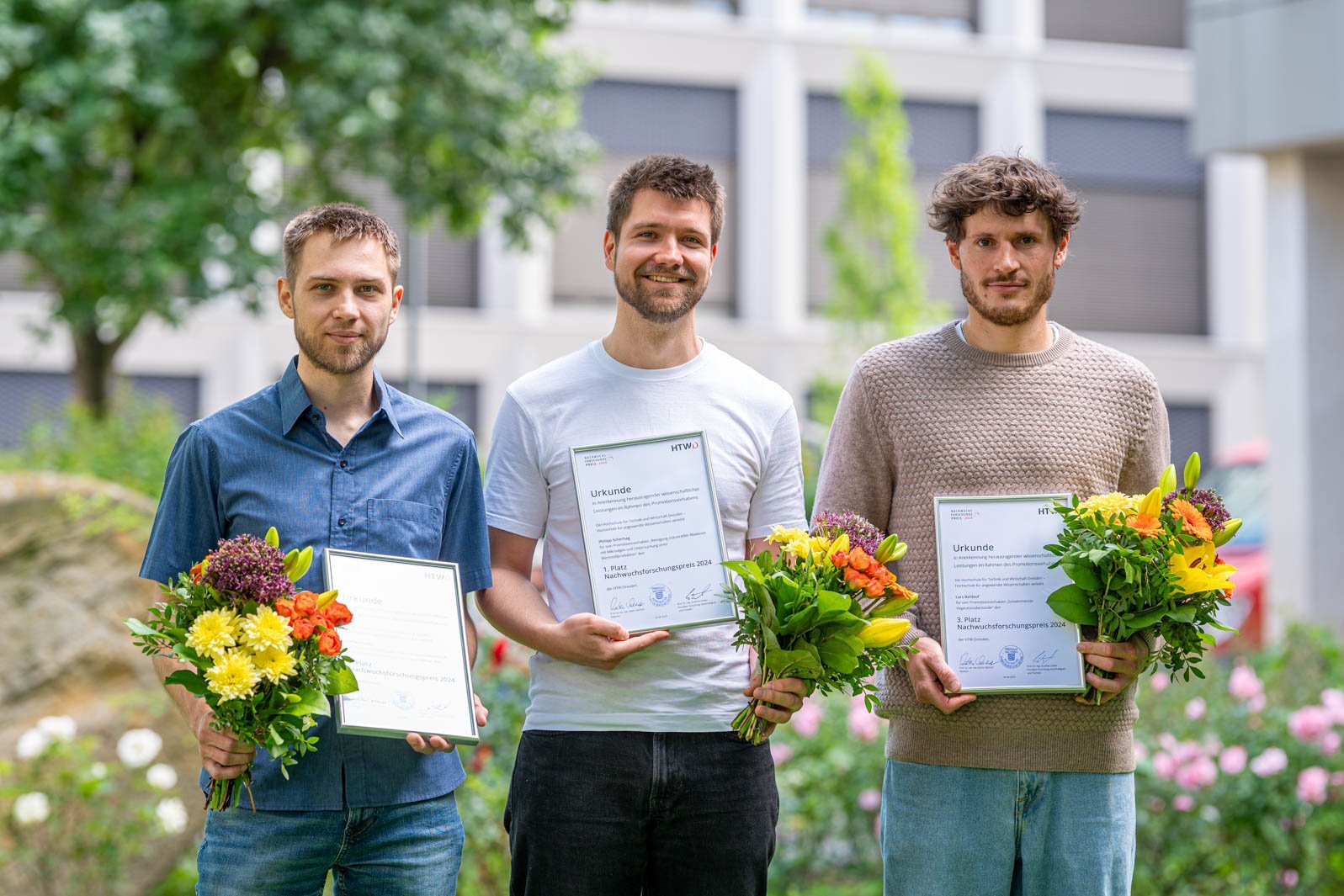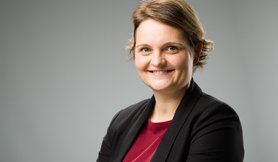
Microalgae as helpers for sustainable management: The best young researchers 2024
Chemical engineer Philipp Scherhag is this year's winner of the HTW Dresden's Young Scientists Award. He was awarded the prize of 1,000 euros for his doctoral project entitled Purification of industrial wastewater with microalgae and investigation of a recyclable material production process.
The award-winning research topic
In the fight against climate change and with the aim of utilising resources more efficiently, the concept of the circular economy is seen as a solution. Waste streams are utilised as raw materials for new production processes. In his approach, Mr Scherhag uses microalgae to convert nutrients from wastewater into useful products. Specifically, he uses the extremophilic red algae Galdieria sulphuraria, which can live in extreme environments such as acidic or hot water. This alga can absorb sugars from wastewater and at the same time produce a valuable blue dye called phycocyanin (PC), which is used in the food, cosmetics and medical industries. Mr Scherhag's research aims to use the process to produce valuable biomass during the purification of wastewater in the food industry.
With his contribution to optimising the use of resources, the chemical engineer was able to convince the jury in both evaluation rounds. At the Young Scientists Symposium, he presented a functioning bioreactor to illustrate his research topic to the audience. „The young researchers and their doctoral theses at our university are an important part of our innovative strength. Their tireless dedication and creativity not only drive progress in their respective disciplines, but also make a significant contribution to solving global challenges. I would like to express my sincere thanks for this,“ said Professor Göbel, Vice-Rector for Research, Sustainability and Transfer, in recognition of the finalists’ contributions.
The second and third-placed entries
Florian Franke qualified in second place with his doctoral project on Spatial temporal dynamics of fluids and tissues: discrete vs continuous modelling. In his work, Mr Franke develops and optimises mathematical models for the simulation of biofluids - a variety of cells that act like liquids. With the help of these models, the mathematician can, for example, make more realistic predictions about the growth of tumours, which enables doctors to treat cancer more efficiently. He received the prize of 500 euros for his work. Third place went to Lars Baldauf from the faculty of Agriculture/Environment/Chemistry. In his doctoral project on Floating vegetation stands, he is investigating which alternative and ecologically compatible materials can be used to create floating bodies for floating islands. These floating vegetation structures are modular solutions that enable the renaturalisation of a body of water even under limited spatial conditions.
The award ceremony took place for the tenth time at HTW Dresden. The winners were honoured by Professor Salchert and Professor Göbel during the Dies Academicus on 5th June 2024. On the evening before, the young researchers answered questions from an interested audience at the Young Scientists Symposium.
Young Scientists Award of the HTW Dresden
The Young Scientists Award recognises outstanding achievements at HTW Dresden in the field of applied research. Researchers at HTW Dresden and ZAFT e.V. who have started a doctoral project or whose doctorate was completed no more than one year ago are eligible to apply. The jury consists of members of the HTW Dresden Senate Commission for Research.
Contact


